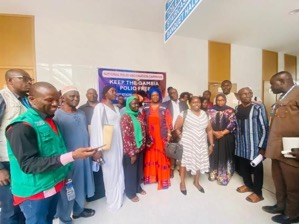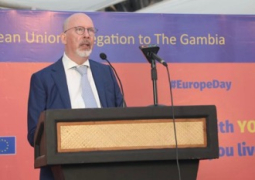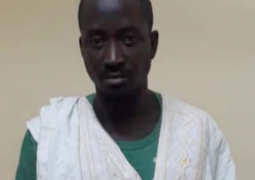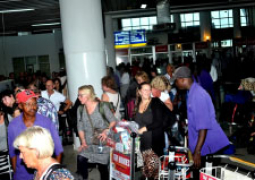
The national polio vaccination campaign is in line with the WHO recommendation, Standard Operating Procedures (SOPs) for polio outbreak response and the international health regulation.
The vaccination will target all children aged 0 to 59-months old across the country.The vaccination teams and social mobilisers will be moving house-to-house, schools, market, ferry crossing points, garages, health centres, border entry points, and in strategic locations.
Speaking at the stakeholders engagement on Thursday at the Conference Center, Yankuba Saho, Nutrition Specialist of UNICEF, said the success of the campaign lies on the active engagement of stakeholders at every level, from local communities to government agencies and international allies.
“To ensure that all 426,477 eligible children are vaccinated, the commitment of all stakeholders is essential to make this campaign effective, accessible, and impactful,” he said.
“Thus, UNICEF believes that by promoting strong partnerships, we can overcome barriers to vaccination, particularly for children in hard-to-reach areas. From health workers to community mobilizers, each partner plays a critical role in helping us reach every family with life-saving vaccines.”
He added that in ensuring a successful polio campaign, the efforts of community and religious leaders should be well recognised. “Their voices carry immense influence, helping to build trust, dispel myths, and encourage vaccination within their communities,” he said. “We are grateful for their support and for their ongoing work to address hesitancy and misinformation. Through open dialogue and mutual respect, we can ensure that families feel confident in bringing their children forward for vaccination.”
He added: “UNICEF is also appealing to all the parents, caregivers, and community members to participate in this coming campaign by welcoming health workers and bringing their children for vaccination. Their role is vital in achieving high coverage rates and ensuring the health and safety of all children.”
Sidat Fofana, Program Manager for the Expanded Program on Immunization, stated that The Gambia is fortunate to not have registered polio since 1986, which he described as a remarkable achievement.
However, he said when they installed their environmental surveillance, they started picking CDBD which is not polio per se. Thus, it is found in the environment, “which is why we decided to embark on this campaign to strengthen the immune system of the children as the virus is spreading in the sub region”.
He called on guardians and the community to allow the children to get vaccinated to ensure the country stays free from polio.
Dr Ifeanyi Livinus Udenweze, WHO emergency team lead, assured of the world health body’s continuous support to make children and all citizens free from all sorts of illnesses.
Read Other Articles In Headlines





